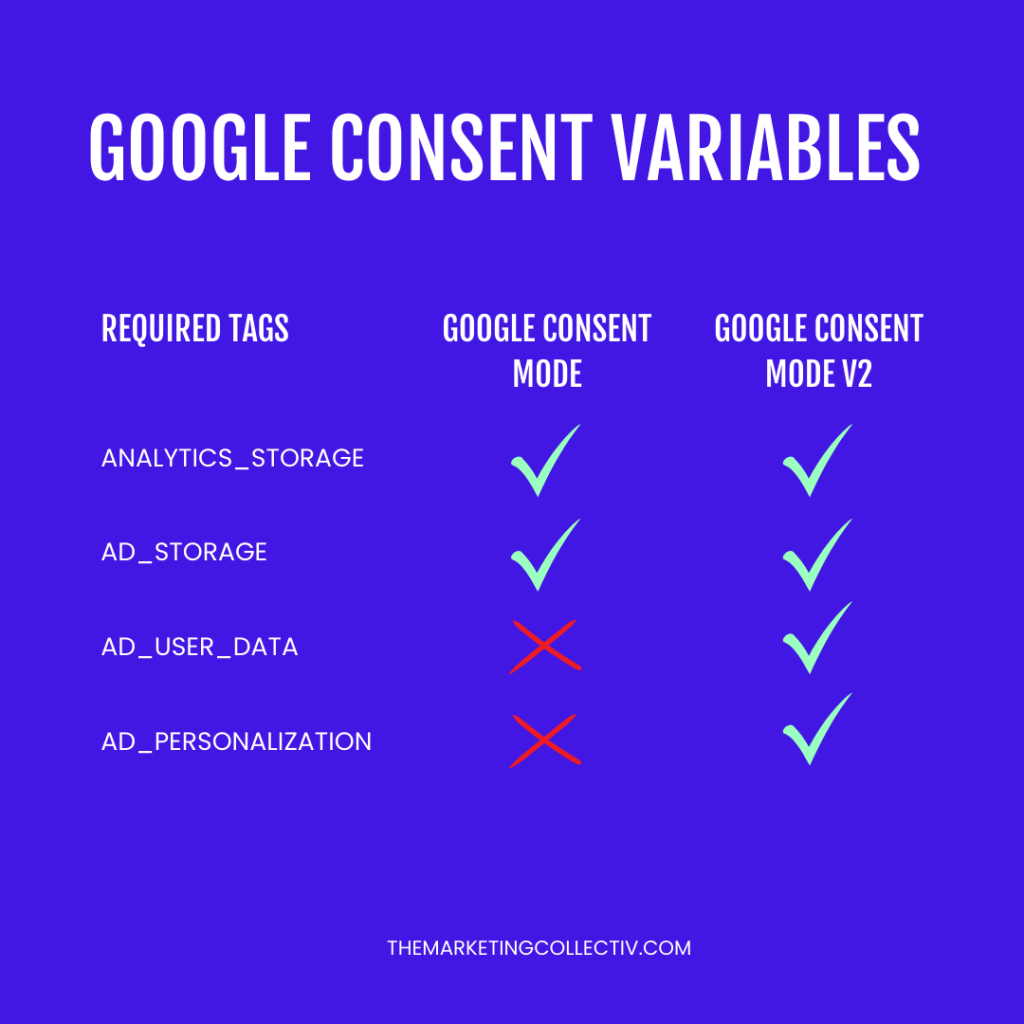In this blog, you’ll find out why it’s essential for European companies to update their Google cookie consent settings.
The cookie banner on the websites of European companies needs to be reinforced before March 2024. This means that if visitors do not give permission for specific components (see image), these may no longer be used in marketing activities, such as displaying personalised ads via Google. With the refinement from Google Consent Mode to Google Consent Mode v2, two additional data points have been added: ad_user_data & ad_personalization.
Concrete implications for European companies if not adjusted before March 2024 include:
- Absence of personalised ads (e.g., retargeting) on Google products such as Google Ads, Display, YouTube/Video 360, Search Ads 360.
- Disabling the collection of personal data for online advertising.
WHAT NEEDS TO BE ADJUSTED?
The additional data points ad_user_data & ad_personalization need to be measured. While analytics_storage and ad_storage already needed measurement with Google Consent Mode v1, it is crucial to recheck this. Additionally, users must provide consent for this. If not, further marketing tags may not be loaded, risking penalties.
HOW CAN THIS BE IMPLICATED?
The easiest method is to set this up through a Consent Management Platform (CMP) and/or via Google Tag Manager (GTM). The CMP measures the correct variables and consent, while in GTM, you link these to your current tags. Specify which variables the tags should look at to determine whether they should be loaded or not.
Need assistance? Feel free to contact us.


